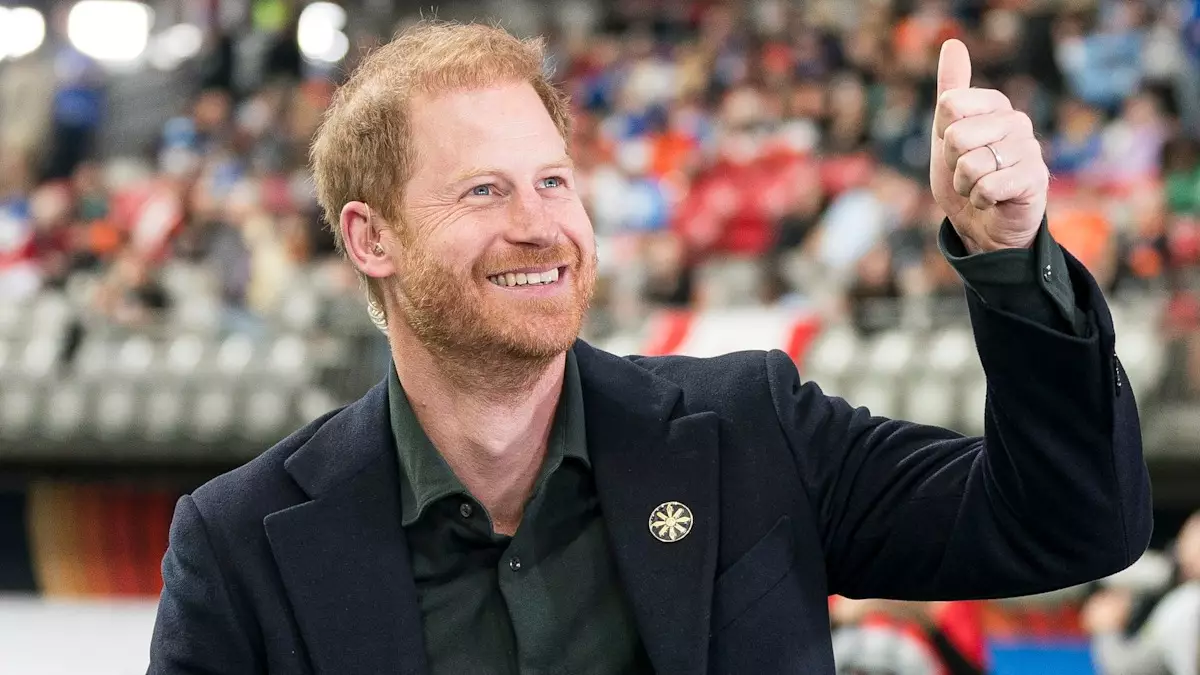In the realm of personal transformation, few narratives unravel as intriguingly as that of Prince Harry, who shifted from his royal life in the UK to embrace a new chapter in California. The transition, which spanned over four years, is not just geographical; it’s linguistic. Since relocating to Montecito with his wife Meghan and their two children, Archie and Lilibet, Harry’s accent and manner of speaking have been subjects of discussion, revealing how deeply one’s environment can influence communication styles.
An Accidental Shift in Accent
Prince Harry, previously celebrated for his distinctively crisp, Etonian English, is now observed adopting increasing American vernacular and speech patterns. Recent social media buzz following a light-hearted video demonstrates this shift vividly. Filmed while Harry visited a New York tattoo studio for a promotional gig related to The Invictus Games, his casual interactions reveal a markedly different linguistic style. Commentators and fans alike noted that his speech incorporates an array of American colloquialisms, from the playful use of “dude” to the relaxed exclamation of “Screw it, let’s do it.” This evolution reflects not just a change in lexicon but a broader adaptation to his new cultural surroundings.
The reactions from fans are telling. Observers are noting the dilution of his British accent in favor of a more Americanized tone. Statements such as “He totally has an American accent now” and “It sounds like Prince Harry is losing his British accent” highlight how noticeable this transition is to those who have followed him closely. While the evolution might seem trivial, it paints a larger picture of Harry’s assimilation into his current life, representing a break from royal tradition.
The linguistic transformation has not gone unnoticed by experts in communication and accent studies. Anthony Shuster, a communication coach, points out the stark contrast between Harry’s current speaking style compared to that of the British monarchy, specifically noting the difference in articulation. His observations suggest that Harry’s accent transformation began to manifest years earlier, particularly after he met Meghan. This idea is supported by the subtleties of his language choices; phrases like “little” morphing into “liddle” reflect American speech patterns that diverge from his British roots.
Tony Thorne, a language specialist, provides further context by explaining how close interactions can substantially affect one’s speech habits. In Harry’s case, living with Meghan, whose Los Angeles roots undeniably contribute to their shared environment, creates a fertile ground for linguistic changes. The blend of British and American cultures in their household becomes a rich tapestry of speech, shaping how Harry communicates.
Harry’s journey in America appears to be a genuine endeavor, as he himself has expressed enthusiasm for his new life. Interviews reveal his affection for the Californian lifestyle, and he often remarks on the enriching environment his children are exposed to. The prospect of raising bilingual children in a space that combines British and American traditions signifies not only a personal shift but a cultural dialogue between two worlds.
Interestingly, Harry’s embracing of American slang and expressions appears to manifest a deeper desire to connect—both with his new audience and with the cultural fabric of his environment. Language experts suggest that adopting local vernacular can aid in fostering connections and improving interpersonal communications, particularly in a society unfamiliar to him. Harry’s desire to blend in can be seen as an effort to relate more closely to those around him.
As discussions surrounding Prince Harry’s accent persist, they reveal more than just a trivial change in speech. They echo deeper themes about identity, belonging, and adaptation in light of significant life transitions. The contrast of Harry’s past and present mannerisms highlights how relocation can lead to an evolution of self.
More remarkably, this isn’t the first time Harry’s language patterns have made news. Instances such as his podcast recordings, in which he also incorporated distinctly American phrases like “awesome” and “you guys,” signal an ongoing shift rather than a mere phase. Such changes speak volumes about the complexities of identity in a globalized world, where individuals constantly navigate multiple cultural influences.
Prince Harry’s linguistic journey reflects a broader narrative of transformation—one that showcases how environment, relationships, and personal choices culminate in the multifaceted journey we call life. It’s a story that resonates beyond the personal realm, touching on universal themes of adaptation and identity in an ever-connected world.

